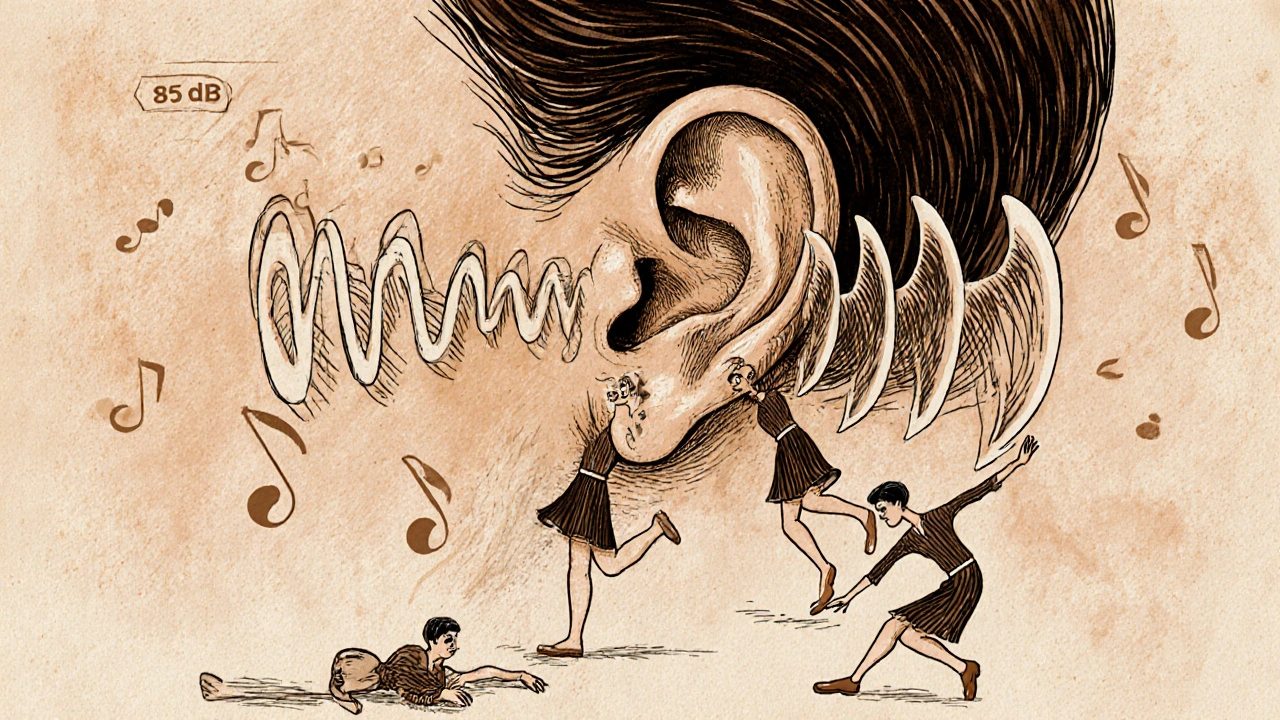Permanent Hearing Loss: Causes, Risks, and What You Can Do
When your hearing doesn’t come back after damage, it’s called permanent hearing loss, a type of hearing impairment that results from irreversible damage to the inner ear or auditory nerve. Also known as sensorineural hearing loss, it’s not just about getting older—it’s often caused by things you can control.
This kind of hearing loss happens when the tiny hair cells in your cochlea die off and don’t regenerate. Unlike temporary ringing or muffled hearing after a loud concert, this damage sticks. The biggest culprits? Long-term exposure to loud noise and certain medications. Drugs like some antibiotics, chemotherapy agents, and high-dose aspirin can be ototoxic, toxic to the ear and capable of causing irreversible hearing damage. Even common painkillers, taken daily for years, can quietly chip away at your hearing. And if you work in construction, music, or manufacturing—or just listen to headphones at full blast—you’re adding to the risk. Noise-induced hearing loss is the most preventable form of permanent damage, yet it’s also the most common.
What makes this tricky is that it doesn’t always hurt. You won’t feel your hearing fading. It creeps up—maybe you start missing high-pitched sounds, like children’s voices or birdsong, or you struggle in crowded rooms even when people are speaking clearly. By the time you notice, the damage is often done. That’s why early awareness matters. Some people with diabetes or heart disease also face higher risk because poor circulation affects the delicate blood supply to the inner ear. And while aging plays a role, it’s rarely the only factor.
There’s no cure for permanent hearing loss, but there are ways to stop it from getting worse—and to live better with it. Hearing aids, cochlear implants, and assistive listening devices can restore function. But the real win? Prevention. Use ear protection in noisy environments. Keep headphone volume under 60%. Get your hearing checked if you notice changes. And if you’re on long-term medication, ask your doctor if it’s linked to hearing loss. You don’t have to accept quiet as normal.
The posts below cover real cases, drug risks, and practical steps you can take right now. From how antibiotics like penicillin can trigger rare ear damage, to which medications are safest for people already at risk, to how digital tools help track hearing changes over time—you’ll find clear, no-fluff advice that actually helps.

Sensorineural Hearing Loss: What Causes Inner Ear Damage and Permanent Deafness
- 15 Comments
- Nov, 19 2025
Sensorineural hearing loss is permanent inner ear damage that affects how sound is processed. Learn what causes it, how it’s diagnosed, and the real-world solutions that help people hear better-even when the damage can't be reversed.




